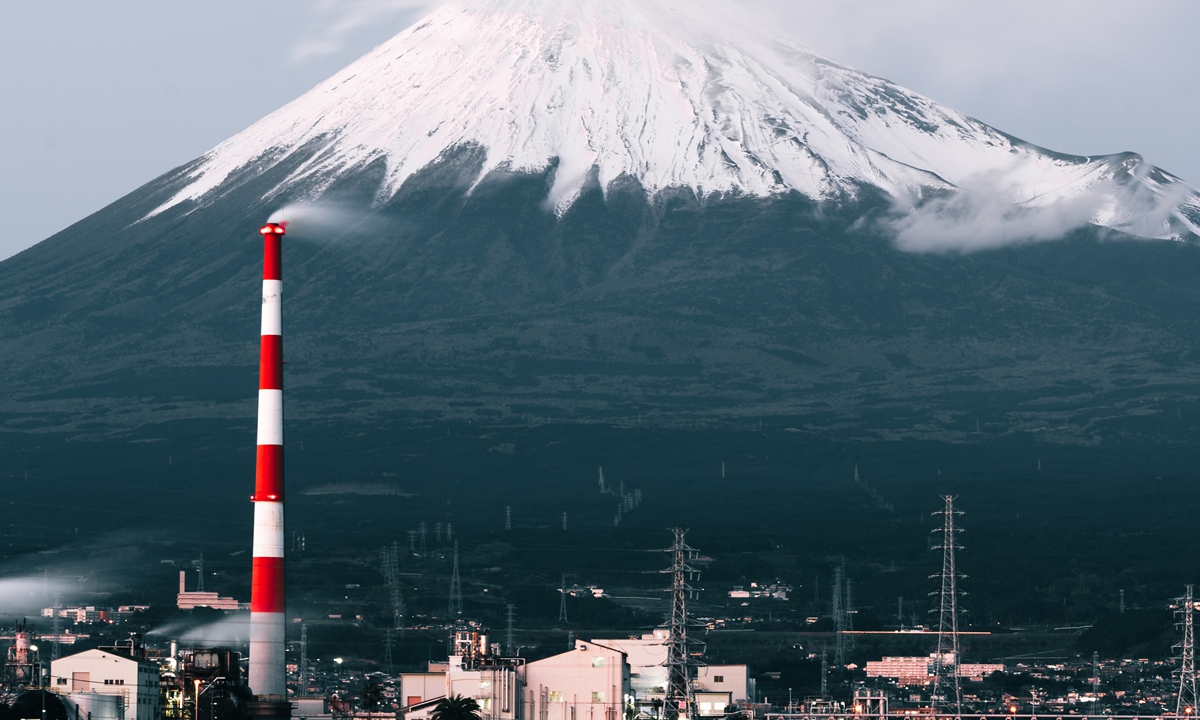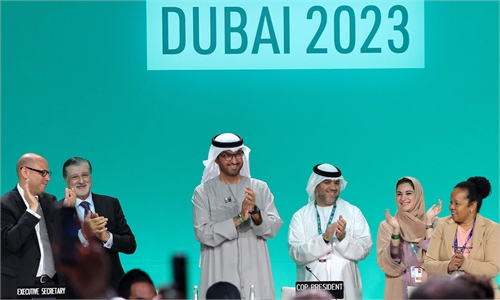The rich need to honor their commitments – An appeal to developed countries during COP28

Photo: VCG
During the COP28 climate conference held in Dubai, Japan was once again "honored" - the Climate Action Network, an environmental protection NGO, presented the country with the "FOSSIL" Prize, a satirical award based on the country's negative attitude toward climate change mitigation. It was the eighth time Japan had been given the prize. Embarrassing but well-deserved.
How is it that Japan, a highly developed country in Asia with both the technology and financial resources to combat climate change, has been disdained by the international community? For quite some time, the Japanese government has been trying to reduce Japan's carbon emissions from coal-fired power plants by utilizing ammonia on a large scale as an alternative to fossil fuels, due to the fact that ammonia combustion does not discharge carbon dioxide and does not require significant upgrades of the equipment in Japan's coal-fired power plants. Sounds ideal. However, although ammonia does not emit carbon dioxide when completely burned, fossil fuels are essential to producing this gas, which means that carbon is still emitted during the process of replacing coal with ammonia. So this seemingly great effort by Japan is not helping with the phasing-out of fossil fuels. What's more, this behavior is kind of deceptive.
Japan is not alone when we talk about the inaction of some developed countries which should have taken on more responsibility. During a donor conference held in Bonn, Germany in October, developed countries committed $9.3 billion to the global green climate fund, yet according to some NGOs, this sum is still inadequate to aid climate-vulnerable nations in combating climate change effectively. It is noteworthy that the United States was among the few countries that did not offer real greenbacks at this Bonn Conference.
This scenario repeated itself at COP28 when the financial commitments from developed countries got even smaller - just $450 million - falling far short of the $100 billion per year that was once pledged for climate finance. This amount not only lags behind ALTéRRA, the UAE's climate finance fund, but also fails to live up to the expectations of the international community for developed industrial countries to keep their promises. Of this money, $17.5 million was donated by the US. Even if we take into account all the financial assistance from the US to mitigate global warming, the ratio will still be trivial if compared with its overseas military aid.
At the same time, domestic subsidies for fossil fuel production and consumption in the US as well as in some other industrial countries are soaring. The Energy Policy Tracker forecasts that G20 countries will allocate a record $1.4 trillion in public funds to fossil fuels in 2022, more than double the amount in 2019 before the COVID-19 pandemic. You could blame the crises in Ukraine and the Middle East for an increased demand for fossil fuels. But the low level of developed countries' political will to shoulder their responsibilities in combating climate change is the core factor behind why this severe issue that impacts the whole of humanity seems so hard to solve. The New York Times was right this time when one of its op-eds said that "the era of climate denial has been replaced with one plagued by climate promises that no one seems prepared to keep."
It is still necessary to remind people of the root cause of the worsening greenhouse effect on the planet when we ask the developed industrial economies to make their contribution, i.e., the massive use of fossil energy and the destruction of the natural environment during the early stages of their development which made their industrialization possible. So when emerging economies such as Brazil, Mexico and India began their development, their carbon emission quotas had already been pre-consumed.
The debt that was incurred long ago by developed countries needs to be paid back at the earliest possible date. It is a solemn demand from the developing countries that the developed ones, of which the US is the biggest emitter, must face up to their responsibility to combat climate change, provide funds to help the developing ones with low-carbon technologies, and limit the use of fossil energy in their own countries.
The author is a commentator on international affairs, writing regularly for Xinhua News, Global Times, China Daily, CGTN etc. He can be reached at Xinping604@gmail.com.

